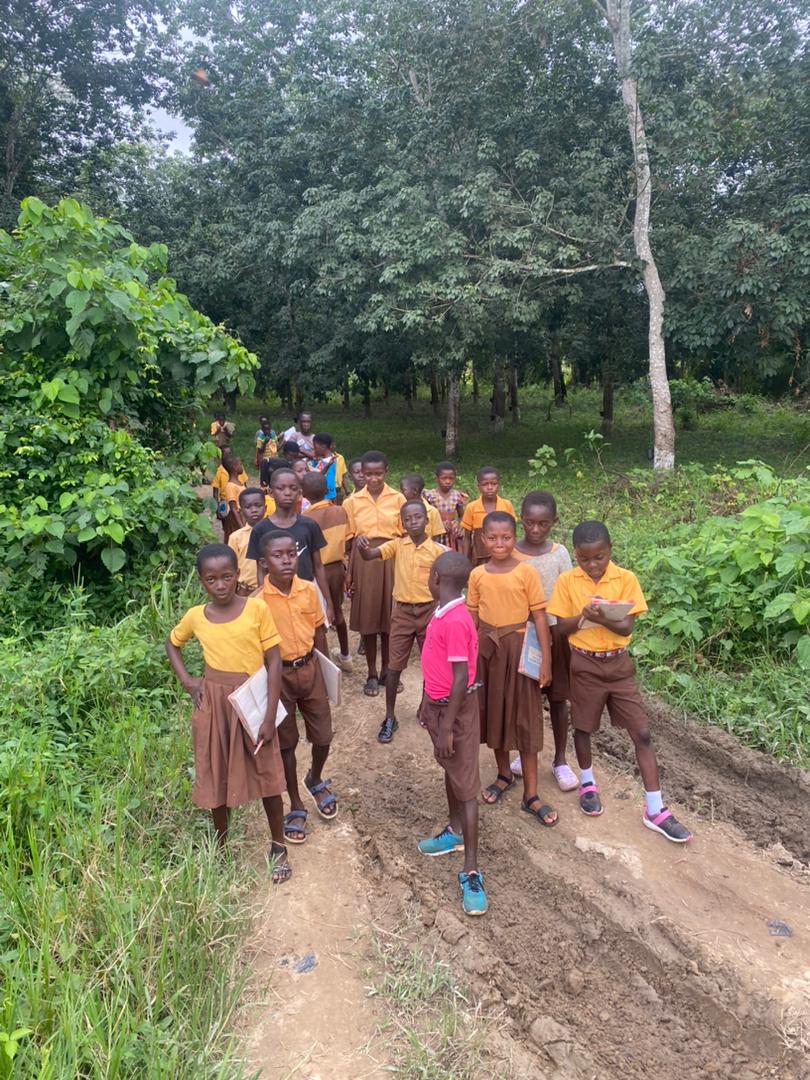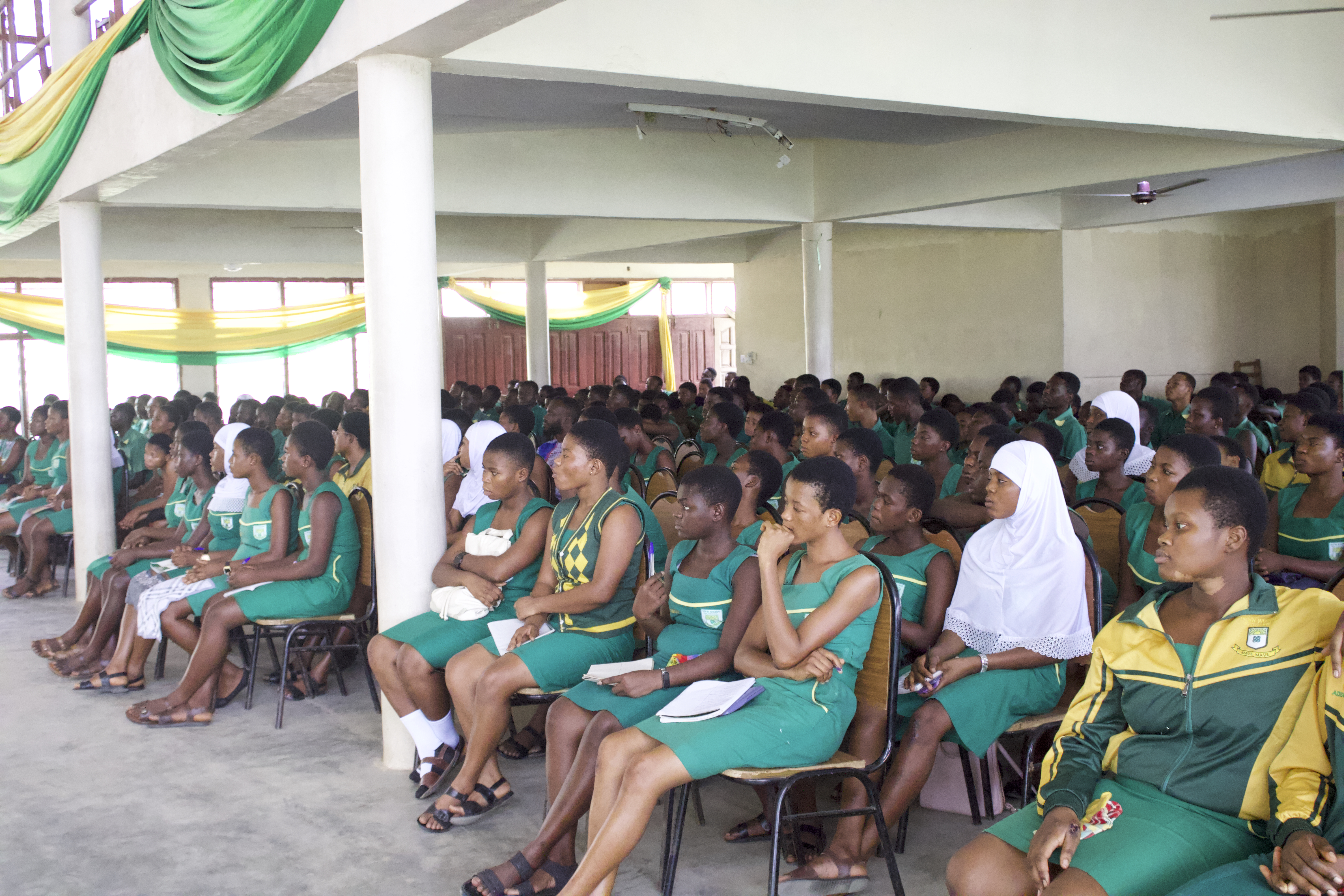TICSEP NATURE TOUR WITH SCHOOL KIDS
Admin April 22, 2024
Stakeholders Engagement

Manso Amenfi, Ghana: Backed by the sustainability quote “we cannot manage resources responsibly when we do not know their real worth” by Ing. Martin Mensah. TICSEP collaborated with Nkakaa D/A school in the rural town of Nkakaa to organise a nature tour for school pupils. This was aimed at increasing children's awareness and appreciation for their environment. During the guided tour led by Ms. Ama Danquah who is a TICSEP Volunteer, the school kids were grouped into working teams and assisted in the critical observation and the identification of some of the elements in their terrestrial ecosystem.
Different trees and animal species, soil, rocks, and water bodies were enumerated by the pupils. Thereafter, they mentioned and described their functions in the environment and other importance or use to humans. These smart kids highlighted the good air, food, temperature controls, fish, medicinal herbs, and fuel wood themselves and their families regularly obtain from the environment. Noting the key roles these environmental resources play in their daily lives, they were further guided to tell how human activities could rob them of these free services. Amazingly, unsustainable mining, illicit wood logging and bushing burning were major concerns raised by the kids to be degrading their environment and their future. Amongst other things, the kids had first-hand experiences on how to tap latex from the rubber plant and water plants. Others drew flowers, trees, and animals and promised to keep protecting them.
The background of this nature tour. The Nkakaa community in the western region of Ghana is a notable hotspot for unsustainable mining (galamsey). It is estimated that three-fifths of the various households in the community depend on unsustainable artisanal mining for their livelihood, thus making, this enterprise a normal occupation. Sadly, despite various campaigns to halt these unsustainable activities, they rather keep rising with numerous cases of school-going children equally engaging in the act. It is interesting to note that areas that were within 100 m of the school’s premises had also been mined at the time of this event. Speaking to the pupils, they barely found any wrongdoing with the activities as they have always known them as normal ventures in which their families and friends engaged for their sustenance. However, after the guided tour, they had a better orientation that their “normal jobs” were robbing them of a sustainable future.
Increasing awareness of the environmental impacts of their mining cultures in the view of TICSEP is not as weighty as wholistically appreciating the ecosystem services and benefits the ecosystem provides to these communities. Because of this, this Citizen Science approach was used to appraise the immediate environment of the pupils. At the end of the guided nature walk, their knowledge of their environment increased, and they were charged to lead the campaign in educating and motivating their families on the need to adopt sustainable approaches in their respective businesses whilst safeguarding their future. Aside from these, green spaces are helpful for improving the mental health of humans, reducing flood and wildfire risks, supplying cleaner air, and enhancing biodiversity conservations. Thus, kids and community appreciation of the functions of green spaces is key in achieving the sustainable development goals.
How do you think the powers of kids can be well harnessed in our collective efforts to environmental sustainability?
Related Posts

Stakeholders Engagement
Admin
April 22, 2024
TICSEP JOINED DAAD EXPERT FORUM ON RESPONSIBLE NATURAL RESOURCES MANAGEMENT IN AFRICA
Read more
Stakeholders Engagement




